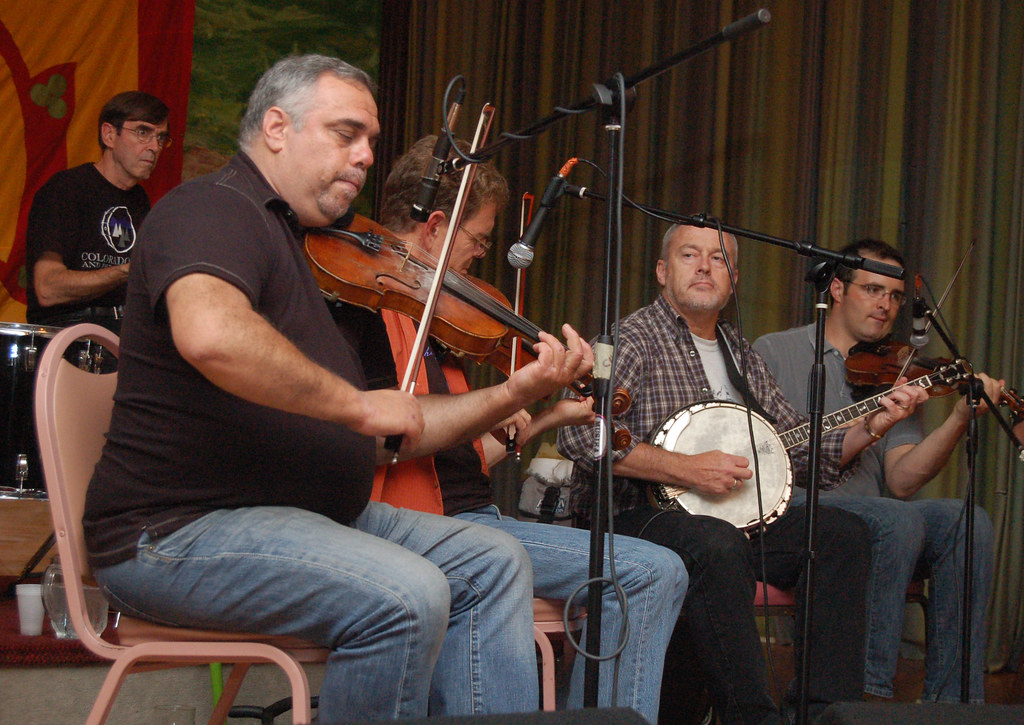Tony DeMarco’s family story isn’t unusual for New York and other big Northeastern cities. He’s the offspring of that classic “Gaelic and garlic” heritage, a DeMarco on one side, and, on his mother’s side, Dempseys.
“I’m in a book that was all about the Irish-Italian condition in New York, called ‘An Unlikely Union’, written by Paul Moses,” says DeMarco. “He goes into the whole story about Italians and Irish in New York, and how they did and didn’t get along. My whole family consists of those kinds of relations and marriages.”
In many, if not most cases, the Catholic church was the common denominator. Italians and Irish were both Catholic, and they settled in the same neighborhoods. “So the dominant nationalities were Italian and Irish and they married a lot, and I’m a product of that,” DeMarco says. “So we had Irish music and good Italian food.” In DeMarco’s estimation, it was the best of both worlds.
So how did it happen that a kid named DeMarco came to become one of the foremost practitioners of Irish Sligo-style fiddling—a style derived from Ireland’s County Sligo, known for its exquisite rolls and ornamentation?
In DeMarco’s childhood, it was far from unusual for kids to come up through Irish dance and groups like Comhaltas Ceoltóirí Éireann (pronounced COAL-tus KYOL-TOR-ee AIR-in), an Irish cultural organization that places a strong emphasis on Irish traditional music and dance.
Tony DeMarco, 64, didn’t follow that path. In fact, he came to Irish in a roundabout way. In his teens, he played guitar in garage bands. In senior year of high school, he needed extra credit to graduate, and so he chose music. “They put me in the string section of the high school band, and that’s how I picked up the violin.”
“I really didn’t know what to do with it (the violin) at first,” he says. At the time, the early ‘70s, there was a new revival of folk music, down in Greenwich Village, with an emphasis on acoustic music, with banjos, fiddles, mandolins and similar instruments. “My friend who played guitar kind of edged me into learning country and bluegrass music. That’s where I started learning American folk music. From there, I got into Irish stuff, living in Brooklyn around the corner from (County Longford-born) Paddy Reynolds, one of the best Irish fiddlers who emigrated to America.
“Most of the guys I had met were all older than me, like Paddy Reynolds, Andy McGann and Martin Wynne. I was fortunate to have had those kinds of teachers and people to follow, and that’s why I picked it up pretty quick, just having a really good source of the music. I was lucky. They were real Sligo-influenced players and it was just kind of a dominant style in New York City.”
He began listening to old recordings featuring great Sligo-influenced players as well, further bolstering his repertoire and his appreciation of that style of fiddling.
In the beginning, DeMarco didn’t apply himself to fiddle full-time. He became a commodities trader in the ‘80s—a career he pursued for 26 years—moving on to a career in music after the internet made online trading more popular.
Today, DeMarco is one of the preeminent Irish fiddlers. The New York Times recently profiled him in a story about Irish traditional music sessions in the New York area—a story in which he was labeled “the Tradfather.”
“I’m not sure how that came about,” he laughs. “But we’re New Yorkers, so we love nicknames. There’s some good ones, and there’s some bad ones. Generally, you hope it’s a good one.”
If you’ve never heard Tony DeMarco play—or if you have heard him, and you can’t wait for another fix—you’ll have your chance September 14, when he and his band Atlantic Wave will be headlining at the Philadelphia Ceili Group’s 45th Irish Traditional Music & Dance Festival, at the Philadelphia Irish Center, 6815 Emlen Street in the city’s Mount Airy neighborhood. Tickets and info here.
DeMarco has been playing the festival for many years, but he’s eager to return. “I’m looking forward to it,” he says. “It should be a good show. It’ll be fun.”
For more of our interview with Tony DeMarco, listen to the podcast.

